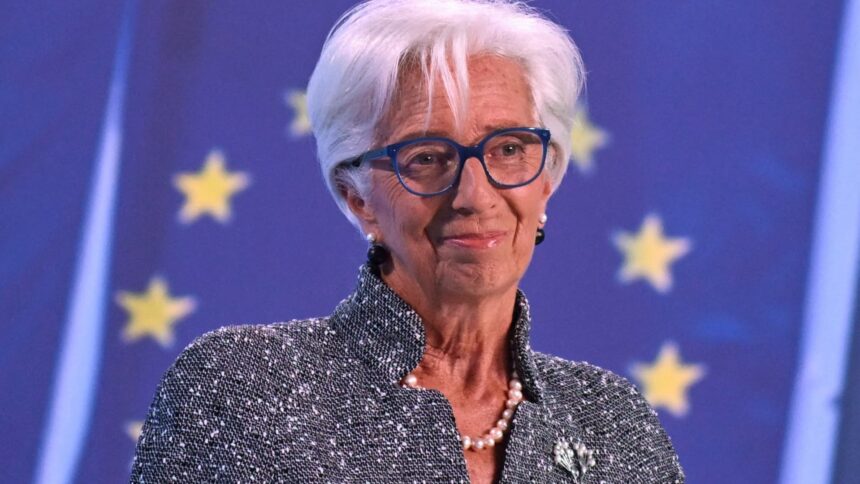
Europe must “be prepared” and anticipate possible customs tariffs from the new US President Donald Trump, the President of the European Central Bank, Christine Lagarde, told CNBC on Wednesday.
She said Trump’s failure to impose blanket tariffs on the first day of his presidency was a “very smart approach…because blanket tariffs don’t necessarily produce the results you expect.”
As such, she said she expects Trump’s tariffs to be “more selective and targeted.”
“What we need to do here in Europe is be prepared and anticipate what’s going to happen in order to respond,” she told CNBC’s Karen Tso at the World Economic Forum in Davos.
Trump has threatened to impose tariffs on goods imported from the EU to the United States and has repeated the claims since his inauguration on Monday, telling reporters that the EU has been “very, very bad to us.” prices.”
Valdis Dombrovskis, the European Union’s economic commissioner, told CNBC on Wednesday that if the bloc’s economic interests needed to be defended, the EU would do it. answer “proportionately”.
The impact of potential US tariffs is widely debated. Economists have said the tariffs could harm the economies they are imposed on, leading to fewer exports of goods to the United States. Some have also warned that the U.S. economy could be hurt because the tariffs could lead to higher inflation.
Trump said the tariffs would protect American businesses and support his country’s economy.
The ECB’s Lagarde said Wednesday that the theory of substitution – reducing imports from Europe in order to “strengthen” manufacturing in the United States – was “questionable because the US economy […] It’s almost hot right now.”
“If you look at the [U.S.] labor market, you have a very low unemployment rate. If you look at the capacity, it’s already running almost at full capacity. So the idea that you can make what you’re not going to import anymore, or you’re importing at much higher prices, is… it’s something that’s going to take a little bit of time,” she said. declared.
Importers would also likely not be able to run their businesses on low margins for an extended period, meaning that ultimately “the responsibility lies with the consumer”, Lagarde added.
“A way to respond” to American trade policy
Lagarde also called for the removal of barriers to trade in Europe, noting that despite aspirations to create a single market, there were still obstacles that sometimes prevented goods and services from traveling unhindered.
“I think this is one of the points raised yesterday by Ursula von der Leyen, the president of the European Commission: let’s make sure we remove the barriers over which we have control,” Lagarde said, without disclosing details.
Lagarde said she hoped this would happen in the coming weeks, describing it as “a way of responding to the change in trade policy in the United States.”
“Be strong at home and make sure you transact, sell and buy at home, save at home and invest at home. This does not mean that we want to engage in a protectionist approach , because what the lowering of barriers has taught us is that trade is actually very useful,” Lagarde added.
—CNBC’s Katrina Bishop contributed to this report.










